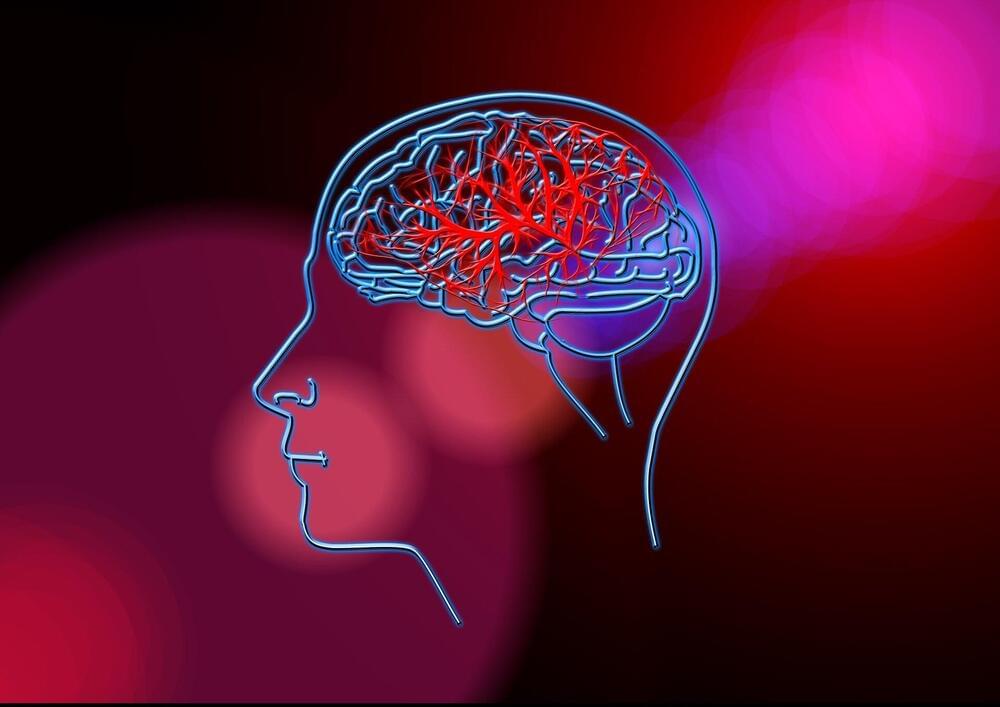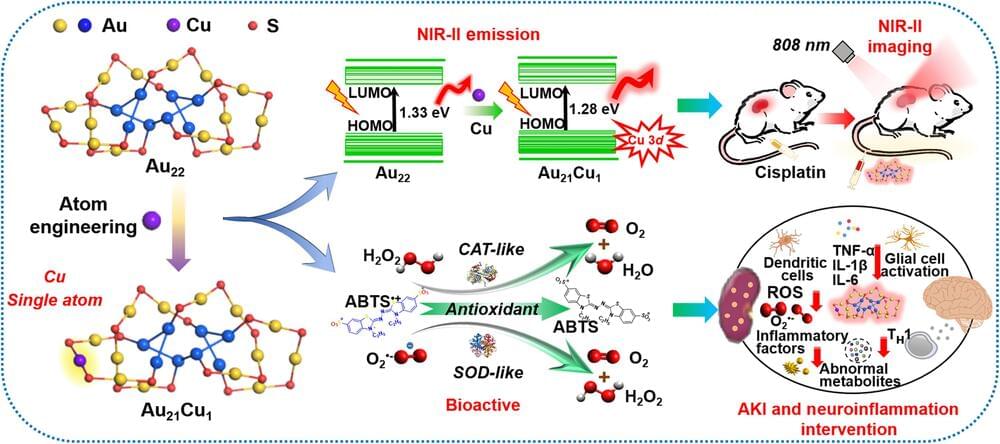Renewing the aging gut microbiome holds promise for preventing inflammatory brain and eye degeneration.



A Scanner Darkly.
by Philip K. Dick.
Read by Gary Telles.
Originally issued by NLS on cassette in 1994
I guess I’ll come back on Thursday.
This is a pretty good alternative to Paul Giamatti’s narration.
“In a near-future, drug-ridden America, narcotics agent Bob Arctor goes undercover to catch a drug dealer. In the junkie culture in which he operates (even his girlfriend is a dealer), he takes large doses of a drug that splits his brain into two separate personalities. The agent has no knowledge of his other self, who, as it turns out, is the drug dealer he is after.“
00:00:00 — (i) Book info.
00:03:03 — (01)
00:41:07 — (02)
01:16:47 — (03)
01:52:56 — (04)
02:31:37 — (05)
03:00:47 — (06)
03:37:45 — (07)
04:17:14 — (08)
05:20:03 — (09)
05:37:56 — (10)
06:07:01 — (11)
06:35:45 — (12)
07:13:55 — (13)
08:20:10 — (14)
09:12:38 — (15)
09:17:57 — (16)
09:22:50 — (17)
09:34:53 — (18)
Like these books? Want to help?
These books come from the National Library Services.
I encourage you to donate:
https://www.loc.gov/nls/about/donate/
🔒 Keep Your Digital Life Private and Stay Safe Online: https://nordvpn.com/safetyfirst.
Welcome to our channel! In this exciting video, we delve into the fascinating realm of artificial intelligence (AI) and explore the question that has intrigued tech enthusiasts and experts alike: “How powerful will AI be in 2030?” Join us as we embark on a captivating journey into the future of AI, examining the possibilities, advancements, and potential impact that await us.
In the next decade, AI is poised to revolutionize numerous industries and transform the way we live and work. As we peer into the crystal ball of technological progress, we aim to shed light on the potential power and capabilities that AI could possess by 2030. Brace yourself for mind-blowing insights and expert analysis that will leave you in awe.
We begin by exploring the current state of AI and its rapid advancements. From machine learning algorithms to neural networks and deep learning models, AI has already demonstrated exceptional prowess in various fields, including healthcare, finance, transportation, and more. By building upon these achievements, AI is set to evolve exponentially, opening doors to a future where intelligent machines collaborate seamlessly with humans.
Throughout this video, we delve into key areas where AI is expected to make significant strides by 2030. We discuss advancements in natural language processing, computer vision, robotics, and autonomous systems. Witness the potential of AI-powered virtual assistants, autonomous vehicles, medical diagnostics, and even the integration of AI in our daily lives.
To provide a comprehensive perspective, we draw insights from leading AI researchers, industry pioneers, and thought leaders who offer their expert opinions on the future trajectory of AI. Their invaluable insights help us paint a vivid picture of the exciting possibilities that await us in the next decade.
Join us on this thought-provoking journey into the future, as we ponder the ethical implications, challenges, and potential risks that arise with the growing power of AI. By understanding the trajectory of AI development, we can prepare ourselves for a future where humans and intelligent machines coexist harmoniously.

Canada: The European Society of Cardiology (ESC) has taken a significant stride in the field of heart failure management with a focused update to their heart failure guidelines. This update incorporates crucial data from nearly a dozen new clinical trials that have been published since 2021. The trials include notable studies such as EMPEROR-Preserved, DELIVER, STRONG-HF, IRONMAN, and more. The updated guidelines, which were unveiled on the opening day of the ESC Congress 2023, offer novel recommendations related to the use of SGLT2 inhibitors in patients with heart failure and updates on comorbidity management.
New Recommendations:

Researchers at the University of East Anglia have developed a new way of identifying patients at risk of an irregular heartbeat, known as atrial fibrillation.
While not life threatening, the condition increases people’s risk of having a transient ischemic attack (TIA) or stroke by up to five times.
A new study, published August 27 in the European Journal of Preventive Cardiology, reveals four specific factors that can predict which patients will have atrial fibrillation. These include older age, higher diastolic blood pressure and problems with both the coordination and function of the upper left chamber of the heart.

A new study led by researchers at Karolinska Institutet in Sweden has examined how T cells of the immune system are affected by weightlessness. The results, which are published in the journal Science Advances, could explain why astronauts’ T cells become less active and less effective at fighting infection.
The next steps in the exploration of space are human missions to the moon and to Mars. Space is an extremely hostile environment that poses threats to human health. One such threat is changes to the immune system that occur in astronauts while in space and that persist after their return to Earth. This immune deficiency can leave them more vulnerable to infection and lead to the reactivation of latent viruses in the body.
“If astronauts are to be able to undergo safe space missions, we need to understand how their immune systems are affected and try to find ways to counter harmful changes to it,” says study leader Lisa Westerberg, principal researcher at the Department of Microbiology, Tumor and Cell Biology, Karolinska Institutet. “We’ve now been able to investigate what happens to T cells, which are a key component of the immune system, when exposed to weightless conditions.”
In this video, we’ll dive deep into the cutting-edge research on how Artificial Intelligence (AI) and Artificial General Intelligence (AGI) are helping us to better understand the aging process and unlock the secrets to living forever.
We’ll discuss the latest breakthroughs in AI and AGI and how they are enabling researchers to analyze vast amounts of data, identify patterns, and make predictions that were once impossible. We’ll also explore how AI and AGI are being used to develop new treatments and therapies to prevent or reverse aging-related diseases within the Longevity Industry.

The bioactivity of most near-infrared II (NIRII) fluorophores are limited, thereby conflicting the achievement of strong fluorescence and high catalytic activities, due to a lack of free electrons in the method.
To overcome this challenge, Huizhen Ma and a research team in translational medicine, neural engineering, physics, and materials at the Tianjin University China developed atomically precise gold clusters with strong near-infrared II fluorescence to show potent enzyme-mimetic activities by using atomic engineering, to form active copper single-atom sites.
These gold-copper clusters (Au21 Cu1) showed higher antioxidant nature with a 90-fold catalase-like and 3-fold higher superoxide dismutase-like activity compared to gold clusters alone. These clusters can be cleared through the kidney to monitor cisplatin-induced renal injury within a 20–120-minute window to visualize the process in 3D via near-infrared light-sheet microscopy.

The successful transfer of a gene that produces HMW-HA paves the way for improving the health and lifespan of humans, too. In a groundbreaking endeavor, scientists at the University of Rochester have successfully transferred a longevity gene from naked mole rats to mice, leading to enhanced health and increased lifespan. Naked mole rats, noted for their resistance to age-related diseases, have a gene that produces high molecular weight hyaluronic acid (HMW-HA), which when introduced to mice, demonstrated potential anti-aging benefits.